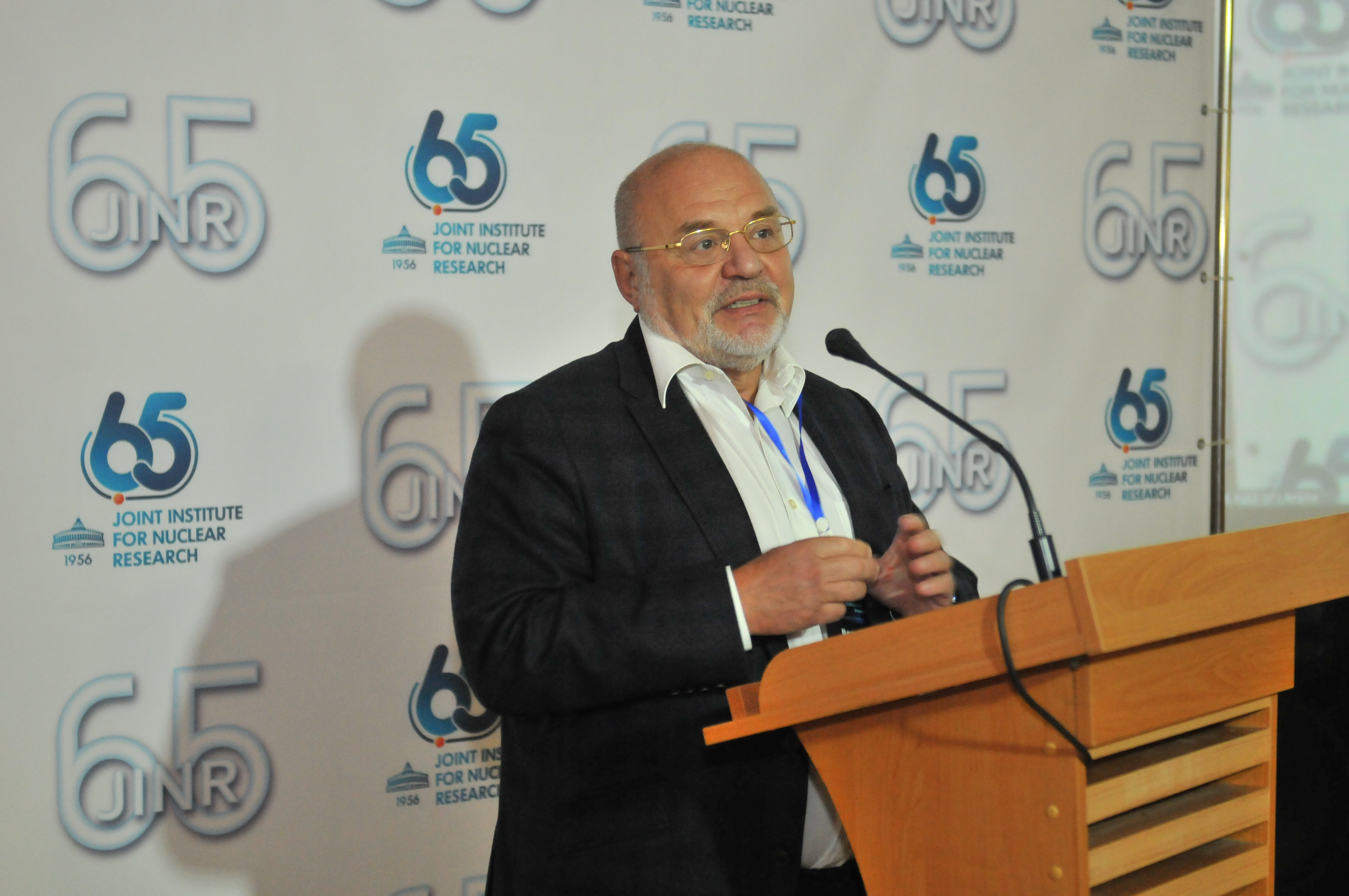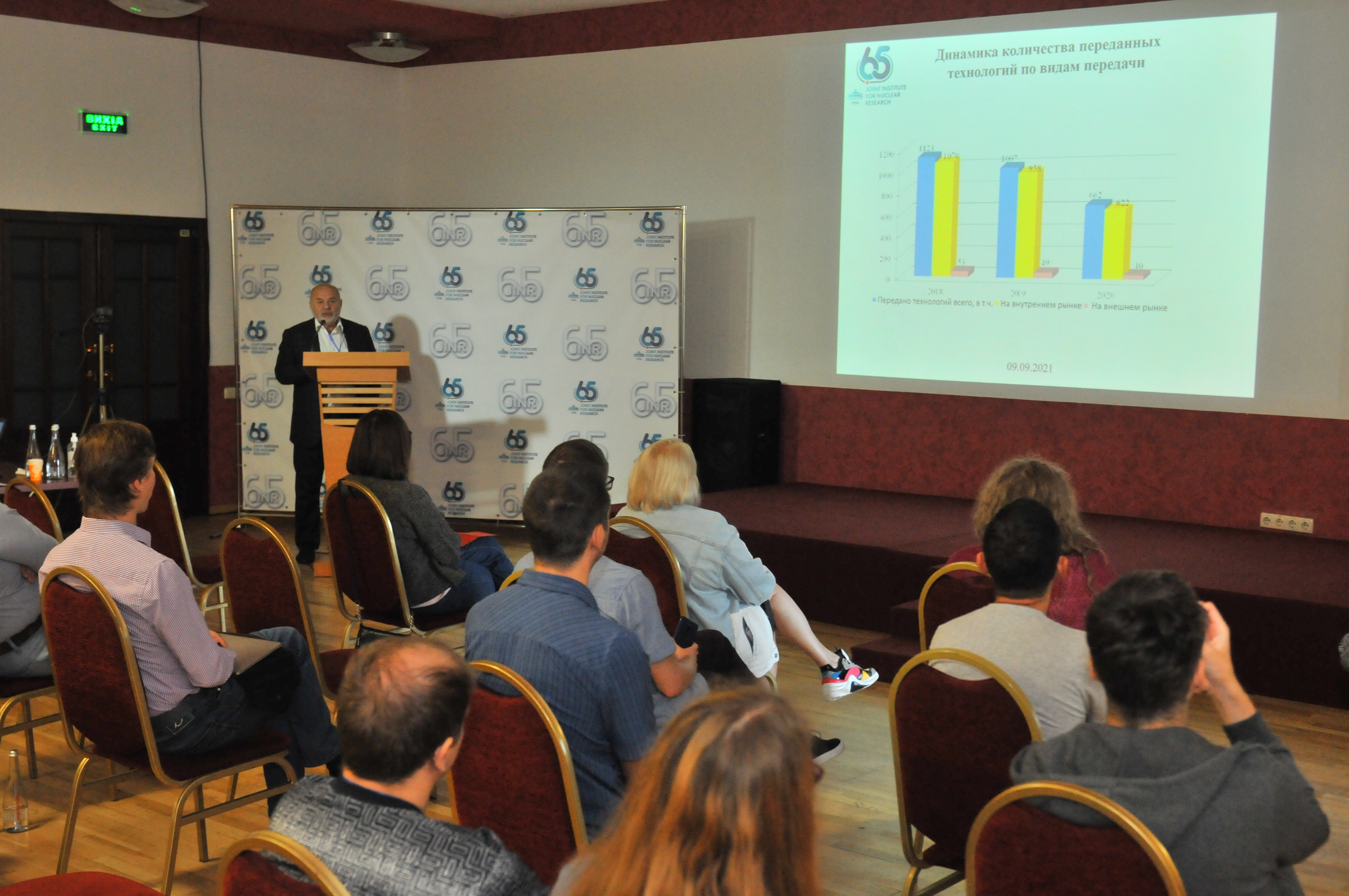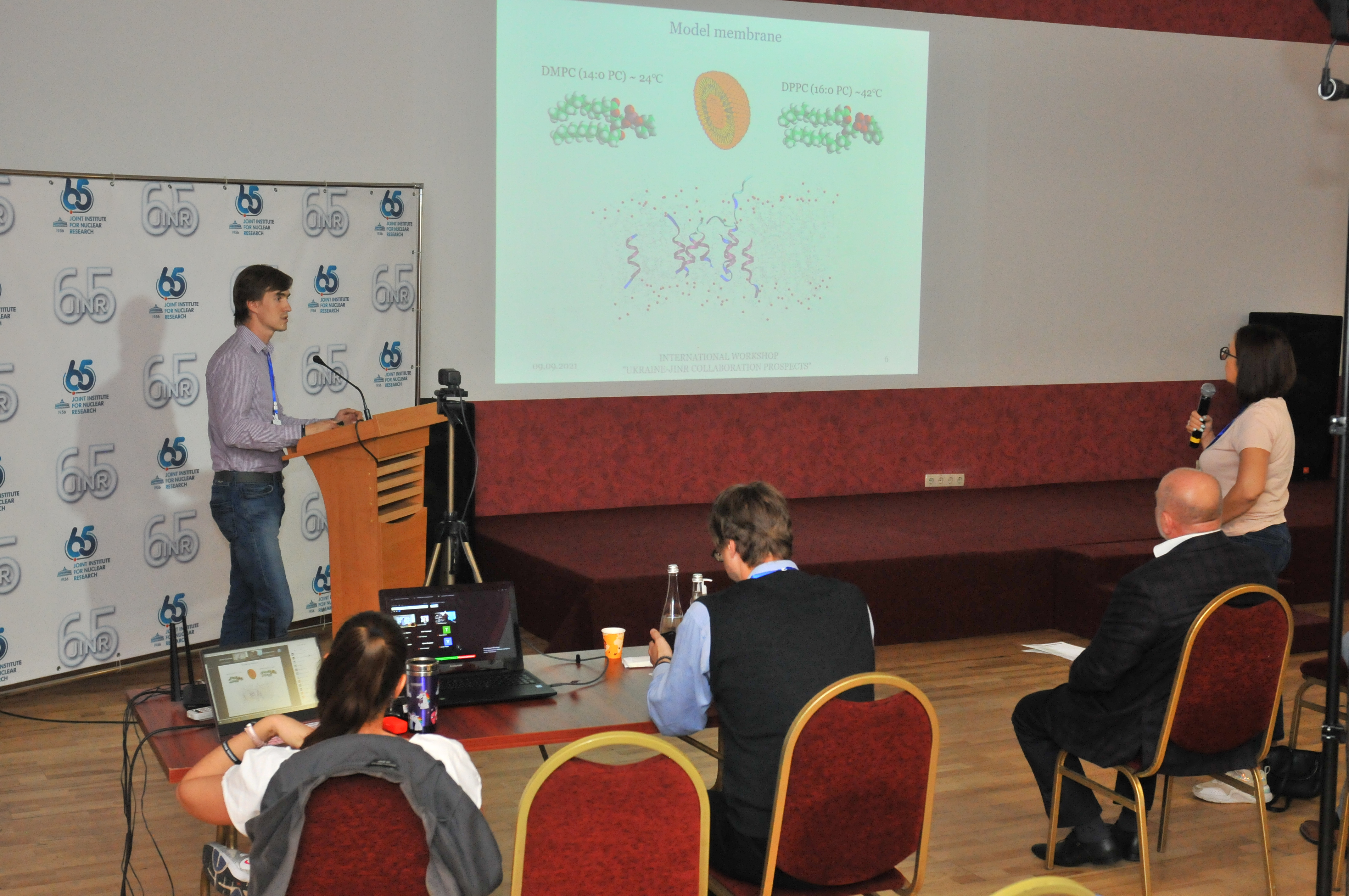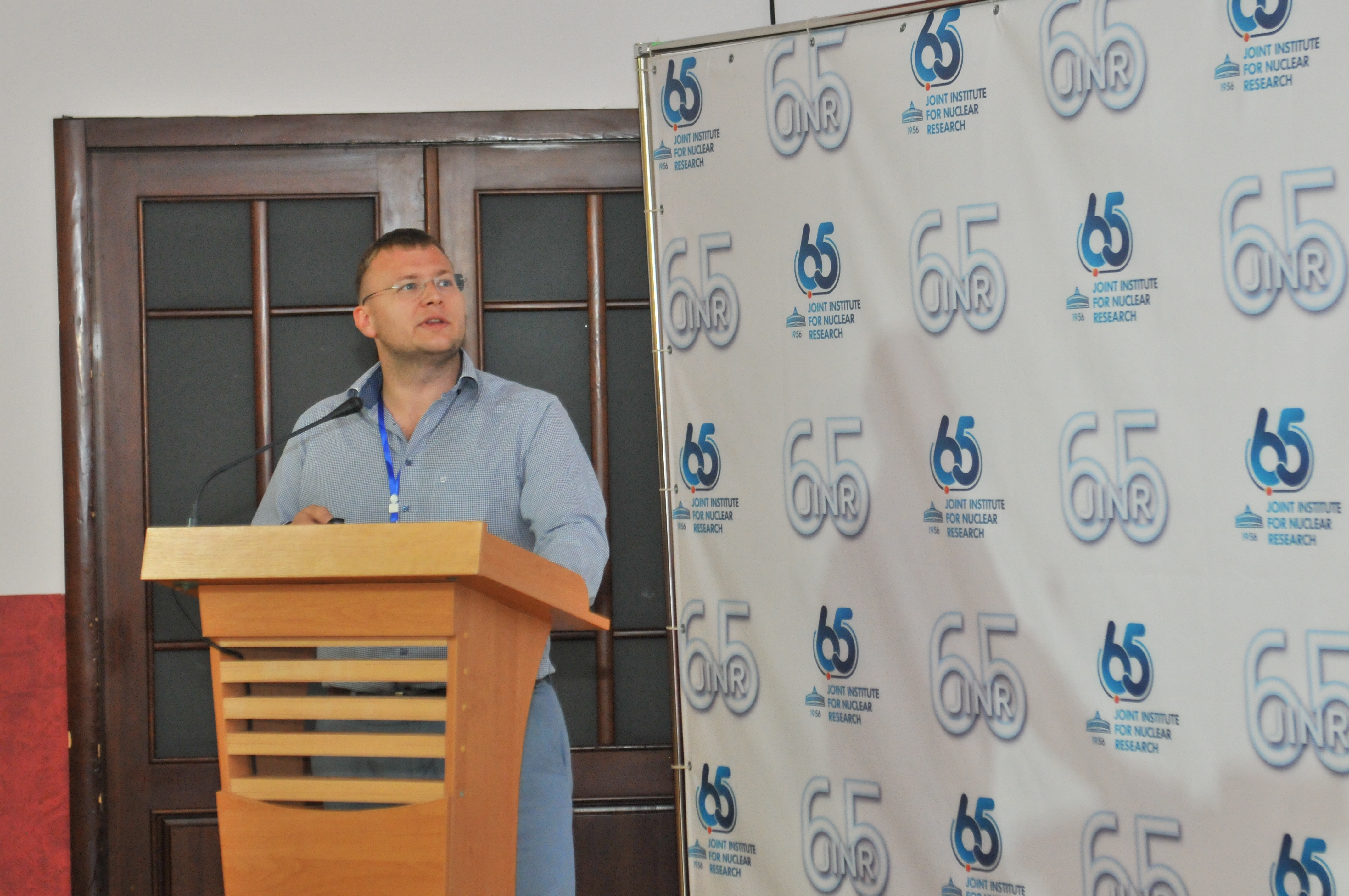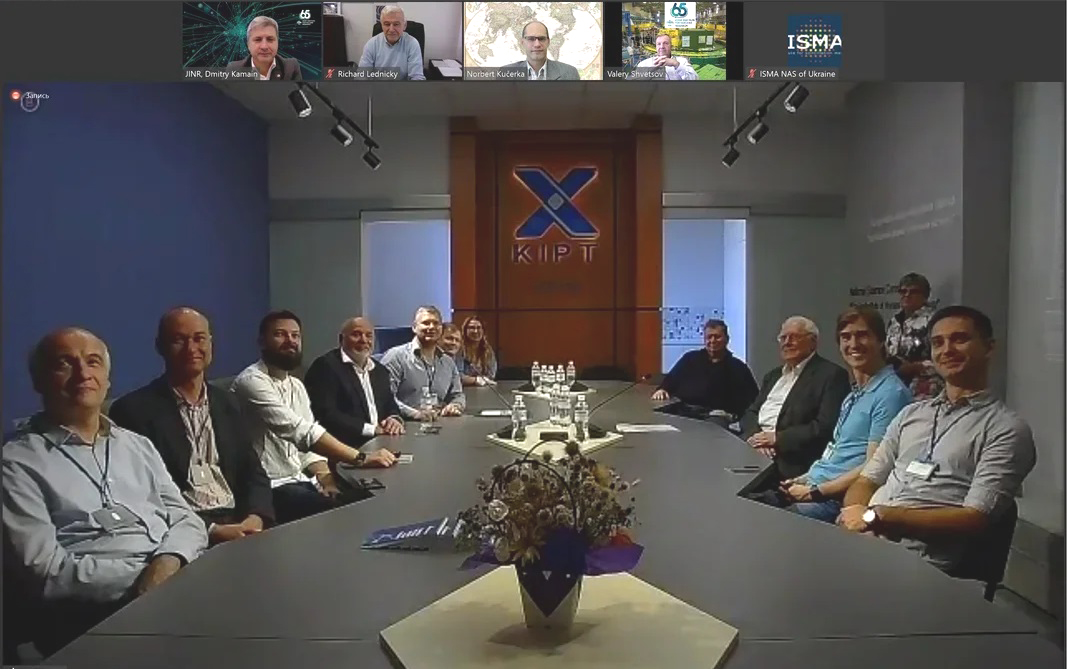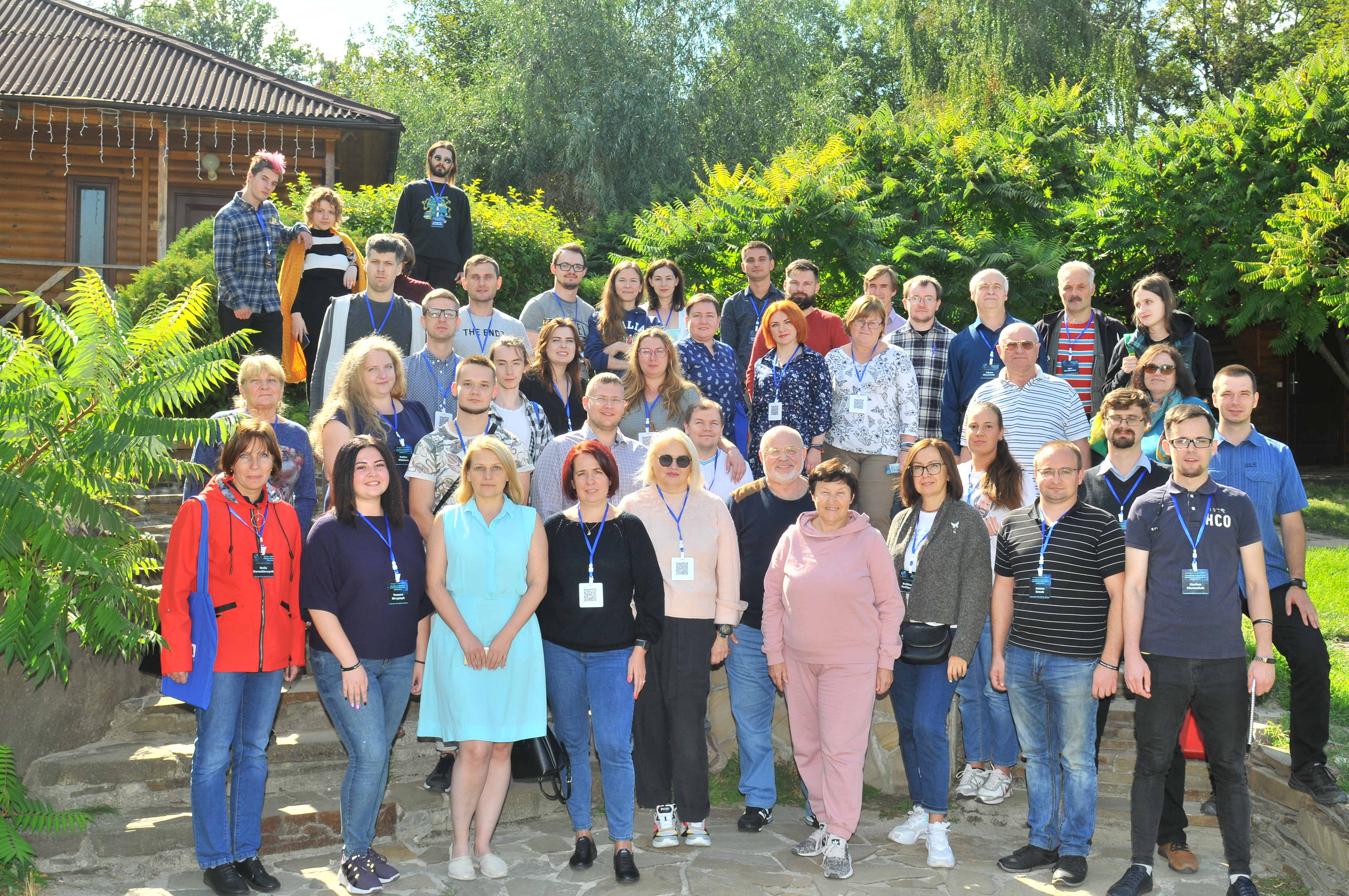At workshop “Prospects for Cooperation between Ukraine and JINR”
News, 20 September 2021
On 6 – 10 September 2021, a workshop “Ukraine – JINR Collaboration Prospect”, timed to the 65th anniversary of the Joint Institute for Nuclear Research, was held at institutes of the National Academy of Sciences of Ukraine as a hybrid event. The meeting was opened by Plenipotentiary Representative of the Government of Ukraine in JINR Boris Grinev. On behalf of the JINR Directorate, whose representatives took part in the meeting via videoconferencing, JINR Vice-Director Latchesar Kostov greeted participants and spoke about the key directions of the Institute’s development. The JINR delegation also included Ukrainian staff members who presented the results of their scientific research carried out at the JINR basic facilities.
One of the most promising scientific directions shown by participants of the meeting was the development of new types of scintillation materials for the production of detectors of high-energy particles. Examples of the efficient use of such detectors produced at the Institute for Scintillation Materials of the National Academy of Sciences of Ukraine in various experiments at CERN were given. The parties discussed the possibility of applying such devices in the MPD and SPD experiments of the NICA collider at JINR.
An excursion around the new nuclear research facility was organized at the National Science Centre “Kharkiv Institute of Physics and Technology” where the physical launch is scheduled for completion for the end of 2021. After the excursion, a round table was held with the participation of representatives of the JINR Directorate and heads of the JINR laboratories at which the opportunities for cooperation development between Ukraine and JINR on the production and operation of neutron spectrometers based on the created neutron source were discussed. The parties also discussed the experience of the JINR Member States in the development of large infrastructure projects.
Workshop participants expressed their keen interest in the User Programme implemented at the IBR-2 reactor at the Frank Laboratory of Neutron Physics. As a result of the discussions, joint studies of nanomaterials based on silicon and vanadium oxide were planned using the capabilities of neutron scattering methods at the spectrometers of the IBR-2 reactor.
